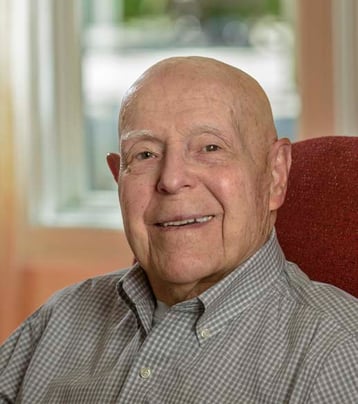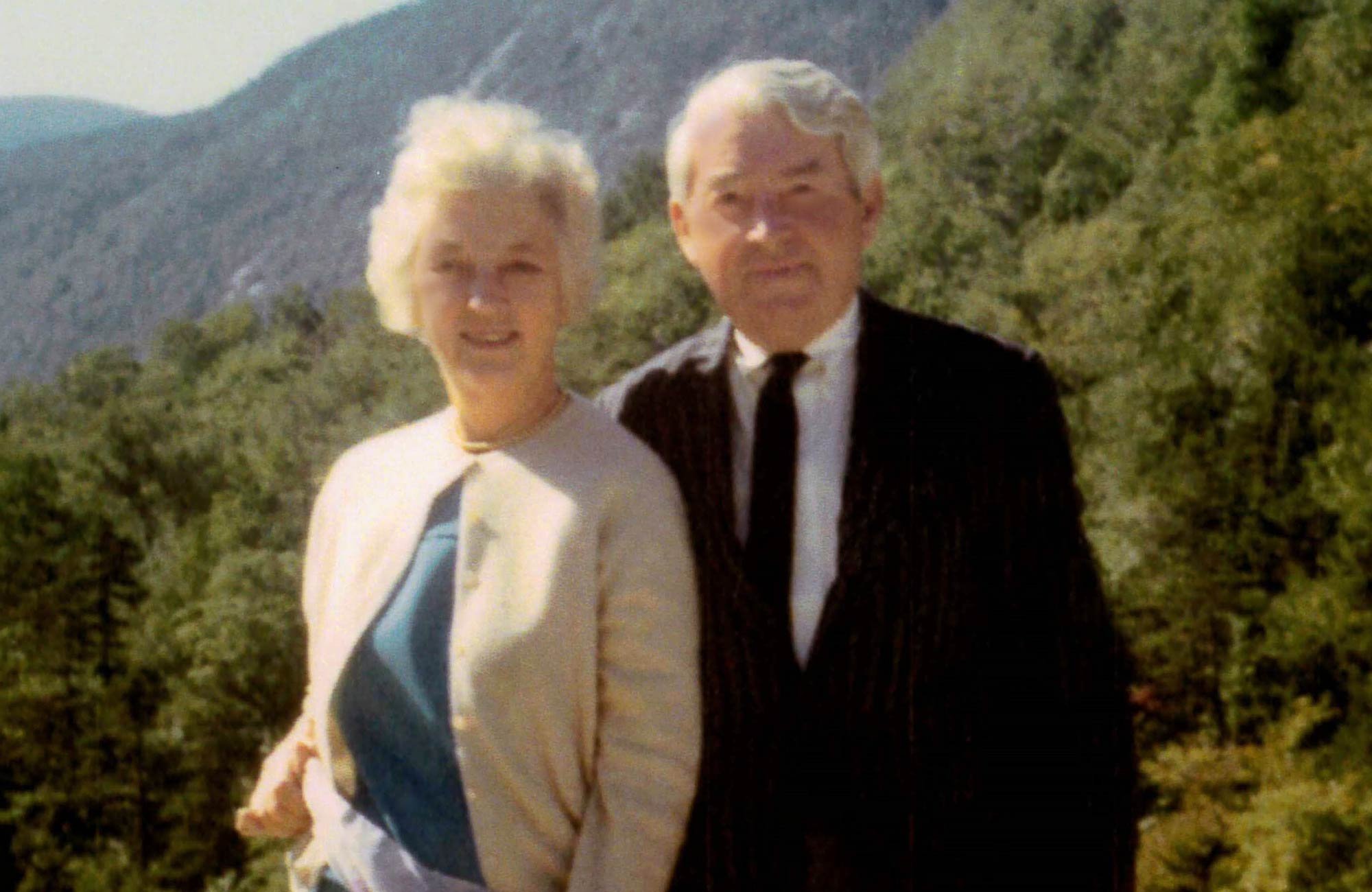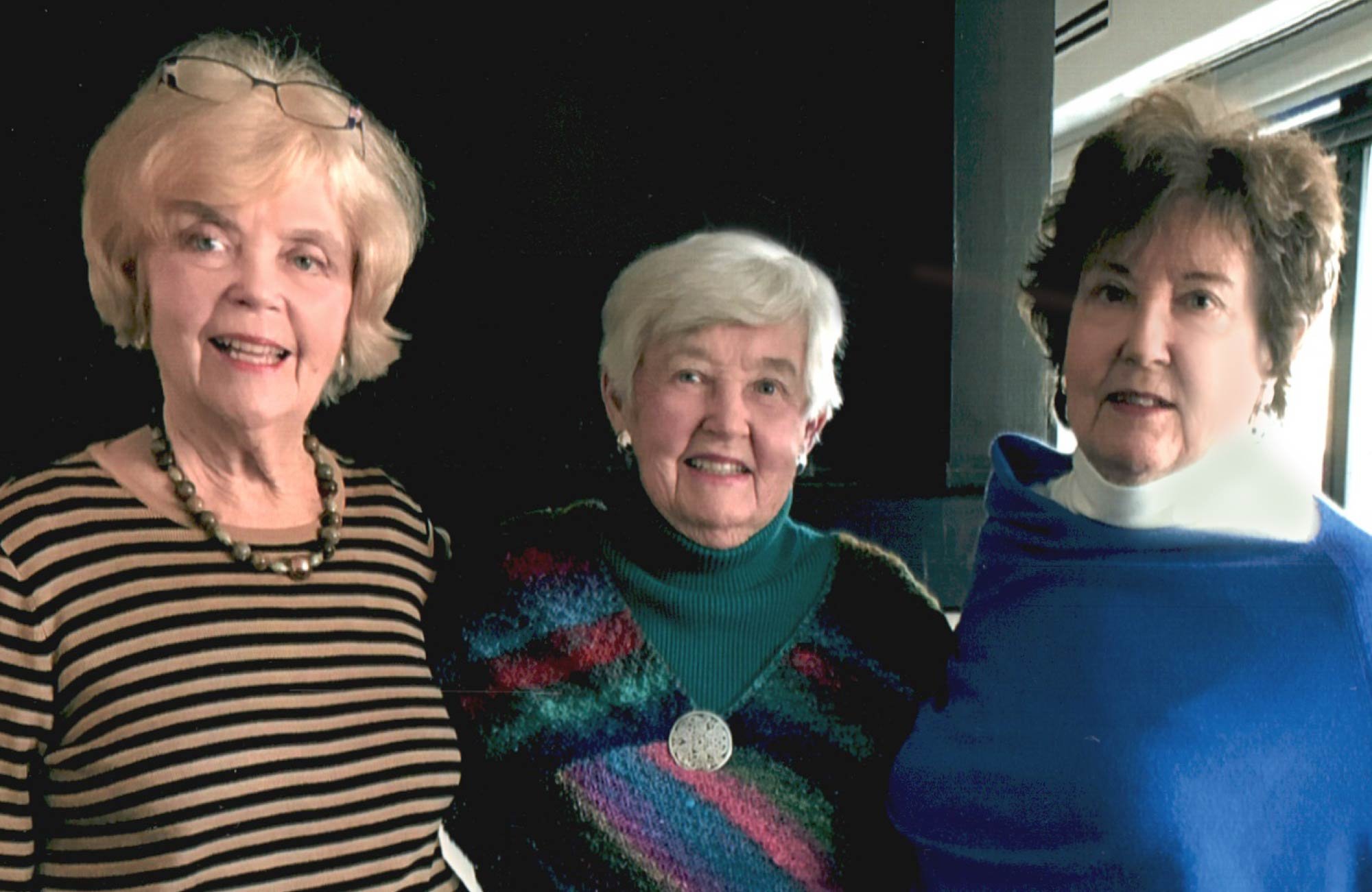
Deupree House resident Earl Mills believes a good education is one of the most important treasures people can gather during their lifetimes. His late wife, Jane, shared that belief, and the pair encouraged their children, grandchildren, and even neighbors to maximize their learning opportunities.
That’s one reason Earl felt compelled to generously support the Lauren Brown Empowerment Fund. This newly created fund is intended to empower historically disadvantaged BIPOC (Black, Indigenous, People of Color) team members at Episcopal Retirement Services to gain the education they need to advance in their careers in elder care, with assistance to help overcome obstacles in their paths. The financial help can include unconventional help, such as transportation, childcare, and eliminating other barriers.
“We heard about the Lauren Brown Fund, and I thought, ‘Wow, that sheds a new light on scholarships — a very important one.’” Earl said. “Not only do you support the education part of it, but the ability to get the education, which really appealed to us. So that’s why we chose Lauren Brown.”
Earl and Jane both grew up in small towns — he in Riegelsville, Pa., where as a young man, he crossed the town’s Roebling suspension bridge across the Delaware River every day for his paper route — and she in Charters, Ky. Although both came from hard-working families, neither had the financial means to send them to college. So, he served in the Air Force from 1950-54 in Germany and used the GI Bill to earn two degrees, a bachelor’s in engineering from Penn State University and a master’s in business from Capital University in Columbus. The pair met in Columbus, where she studied at Ohio State University before stopping to raise their two daughters, Amy and Claudia.
“There’s just a good feeling of helping people,” he said. “My concern is mainly for the low-income population, which is significant. The most important step in their life is to get an education – as much as they can get, to carry them through that difficult part of their life.” “That way,” he added, “you can get a job you like, and do something you’re interested in, and be productive, be creative, be examples for your community.”
That has worked out for the Mills family, many of whom have followed in Earl’s engineering and philanthropic footsteps. Early in his career, he became interested in biomedical engineering. After a couple of jobs, he moved to Cincinnati where he developed the biomedical division of SENCO in Newtown, designing and producing skin staplers and internal-organ staplers. That later was purchased by Ethicon, a Johnson & Johnson subsidiary.
One daughter married an engineer, and three of four grandchildren are engineers, including a grandson now working at Ethicon Endo-Surgery, “where I used to work, in the same department,” he said with a broad smile.
ERS is grateful to Earl for supporting the ERS mission through his annual gift to the Good Samaritan Mission Fund, a major gift as well as a legacy gift from his estate to the Lauren Brown Empowerment Fund.
When Linda Stetson was first introduced to ERS, she knew she had found something special. With a background in healthcare, including nursing homes, she recognized that “The (ERS) philosophy was so progressive compared to my earlier experiences in more ‘institutional’ settings.”
It became more personal when her mother needed care, both at Marjorie P. Lee and the Cottages. Feeling aligned with the ERS philosophy, Linda joined the ERS Board of Directors and served on several committees.
“I became a champion of Affordable Living after touring several communities and witnessing first-hand the dramatic improvement in the quality of life experienced by the seniors benefiting from the support, safety, and security of their new homes,” explained Linda.
“My husband David and I feel strongly that the ability to be philanthropic at any level is a blessing. Gifts of time, through volunteer work, are meaningful to those on the receiving end as well as to those who are giving. Our opportunity to financially support causes that are important to us began small. However, we’re now in a position to make more significant impacts through our gifts. We are extremely pleased to be in the position to do so.”
%20(1).jpg?width=1200&name=ERSF-Donors-David-Linda-Stetson%20(2)%20(1).jpg)
David and Linda Stetson feel strongly that philanthropic giving at any level is a blessing.
Upon learning that funding for the ERS Wellness Coordinator position would soon be depleted, Linda and David decided to direct their gift to ensure the position continues for several years into the future.
“Encouraging a healthy lifestyle in a community environment is generally not a priority in low-income housing communities. Engaging the whole person in recreational, social, and wellness activities are beneficial for maintaining health and happiness for any age, and seniors are no exception. My husband and I wanted to ensure the continuation of the services of the Wellness Coordinator.”
We are grateful to Linda and David for meeting the needs of our current residents and looking ahead to making a lasting impact on the future.
Shares Linda, “We are currently in the process of evaluating the best planned giving tools to meet our philanthropy goals. ERS will be one of the beneficiaries of a legacy gift in the future.”
Three sisters have come together to honor their father's legacy, Wilford (Bill) Romney, for the important role he played in Episcopal Retirement Service’s (ERS) history. Mary Ellen Baude, Nicky Bade, and Emily Romney made a substantial gift to ERS to establish Romney House, an elegant, person-centered care household within the Marjorie P. Lee (MPL) community.

Marnie and Bill Romney
Bill’s involvement dates back to the 1950s when he joined the Memorial Homes Foundation board, which oversaw the Bishop Theodore Irving Reese Home in Clifton. When asked by friend and colleague Charles Lee, he readily agreed to help fulfill the dying wish of Charles’ beloved wife Marjorie P. Lee to “take care of my dear ladies.” Together, they traveled the country searching for best practices at retirement communities. Their journey brought them back to Cincinnati to create a loving community with quality services for the elderly. The Marjorie P. Lee community in Hyde Park, where Bill remained involved throughout his lifetime, opened in 1963.
The Romney House offers an intimate skilled nursing setting within elegant, upscale apartments. The studio and one-bedroom apartments are large and exceptional spaces not often found in long-term care settings. Residents of Romney House enjoy an apartment with high ceilings and large windows to let in the sunlight and enjoy the outdoor scenery.
Many Romney family members have called MPL home, including Bill’s mother-in-law and sister. In 1979, Bill moved into the Care Center at Marjorie P. Lee as he battled cancer, living there until he died in 1980.
Bill’s wife, Marnie, having moved in to be near him, lived there until she died in 1993. “My sisters and I often feel it was fate that he had given all these years to providing quality care for the elderly as a volunteer, and now he saw what it was like firsthand to receive some of that quality care,” says daughter Nicky.
Bill and Marnie’s three daughters have continued the family legacy of service to promoting compassionate, quality care for older adults.

Bill and Marnie’s three daughters, Emily Romney, Mary Ellen Baude, and Nicky Bade
Mary Ellen started volunteering at Marjorie P. Lee in 1988 and has been lending a hand there ever since.
Nicky began volunteering in the mid-1980s, first on the Marjorie P. Lee Advisory Board — a group of volunteers and residents who serve as liaisons to the corporate office — then establishing an auxiliary group at the home, which she led for four years. And for years, she has run the Corner Store, the community’s in-house shop for cards, gifts, snacks, and sundries.
Emily Romney pursued a career with her family in Boston and, along with her sisters, provided the generous donation that resulted in the Romney House’s dedication.